- Home
- Shirlee McCoy
Home with You Page 2
Home with You Read online
Page 2
“Fine. I’m just not used to wearing heels.”
“Mommy says they take practice. Maybe you should practice more.” She offered her hand, and it was as tiny as the rest of her.
“That’s a good idea, poppet,” Rumer said as she got to her feet and brushed dirt off her slacks.
“Poppet?” She giggled, the sound like a creek bubbling over smooth stones. “Is that the same as puppet?”
“No. It’s—”
“Moisey!” a man called from somewhere to their left. “Moisey Bethlehem Bradshaw! You’d better get your butt moving and get back home.”
The girl froze, her dark eyes widening.
“That’s the man!” she said. “And, he said butt!”
“Moisey!” someone else called. Female and young from the sound of it. “You’re not going to get even one teeny tiny piece of cake if you don’t hurry up home!”
“Coming!” the little girl yelled, and took off running, her scrawny legs churning beneath layers of pink tulle.
Rumer followed, abandoning her heels so she could keep up, racing across rough gravel and then onto soft grass.
The house was straight in front of her, maybe a quarter of a mile away, the clapboard siding well cared for, the whitewashed front porch railings sturdy and practical-looking.
Moisey was beelining it across the yard. No time wasted now. She was a girl on a mission, her tutu swishing, her rain boots gleaming in the sunlight.
Must have been the threat of no cake.
“Moisey?!” the man called again, and this time Rumer saw him coming around the side of the house.
He had to be the girl’s uncle. She’d expected gnarled, stooped, old. She’d expected a cane or a walker, gray hair, chewing tobacco, a spittoon.
She sure as heck had not expected Mr. GQ cover model. Mr. Frilly-pink-aprons-make-me-seem-even-more-masculine.
She didn’t expect him to be carrying a chubby baby, but there was that, too. A girl was jogging along beside him, dark blond hair in cornrows, big blue eyes filled with anxiety. She was a hot mess: too-short shirt showing three inches of skin, too-tight jeans clinging to bony hips. Red lipstick smeared across her mouth.
And her eyeshadow . . .
Rumer wouldn’t even go there.
“Moisey!” the girl cried, running over to Moisey and grabbing her arm. “Where have you been! If Sunday were here she’d shi—”
“Don’t,” the man cut her off.
“What?” she snapped, whirling on him like they were mortal enemies about to go to war.
“Use foul language in front of your siblings. I’ve already been called to the school three times because your brothers are repeating you.”
“Don’t blame me for the dweebs’ problems,” the girl said. “They’ve been brats since the day I got here.”
“They are not brats!” Moisey yelled, pulling back her foot in preparation for what Rumer thought would be a well-aimed kick.
Time to put a stop to things.
She stepped forward, lifted Moisey off her feet, and set her down about a yard away from her target.
“Violence,” she said, looking into Moisey’s angry face, “is never the answer.”
“It’d sure feel good,” she fumed.
“Not when I kicked you back,” the girl retorted.
“Enough, Heavenly. Nobody is kicking anybody,” the man said.
Heavenly. The twelve-year-old sister. Only she looked sixteen, and she had trouble written all over her. Rumer recognized it. She’d seen it every time she’d looked at her teenage self in the mirror. Thank God time had tamed some of the wild out of her. Otherwise, she might have ended up like her mother—a burned-out druggy living on the streets.
“So,” she murmured. “You’re Heavenly.”
“And?” the girl responded, giving her a scathing look.
“Heavenly Light,” the man said wearily. “Be polite.”
Heavenly snorted but kept her mouth shut.
The man’s gaze settled on Rumer, his eyes tracking a path from the top of her head to the tip of her toes. She resisted the urge to smooth her hair, straighten her shirt, or brush dirt from her pants. After all, she wasn’t the one who’d lost a kid. She had nothing to feel defensive about.
“You should keep a better eye on your niece,” she suggested. “It only takes a second for children to find trouble. Or for trouble to find them.”
He raised a raven-black brow, his jaw tightening.
There were probably a lot of things he wanted to say. It was never fun to have a stranger point out one’s mistakes, and he would have been within his rights to tell her off.
Instead, his gaze shifted to Moisey. “I’ve been made very aware of that these past couple of weeks.”
“Being made aware of a situation and doing something about it are two different things.”
“I’m aware of that, as well,” he responded, a hint of amusement in his eyes. “What I’m not sure about is who you are and what you’re doing here.”
“Rumer Truehart.” She extended her hand, realizing her mistake the second his palm touched hers. He had warm rough skin that made her think of things she was better off forgetting. He also had an easy smile that he turned on and off so quickly she would have missed it if she hadn’t been staring straight into his way-too-handsome face.
“Your niece walked out in front of my truck,” she added. “I almost hit her. Now my truck is in a ditch. Fortunately, your niece is fine.”
“God,” he muttered, smoothing his hand over his hair and eyeing Moisey. “Didn’t we agree that you were going to take a nap?”
“I’m too old for a nap,” Moisey responded.
“You’re also too old to be punching and kicking when you don’t get your way. Since you still do both, I figure you still need a nap.”
“Sometimes children act out because they aren’t sure how to cope with the emotions they’re feeling,” Rumer pointed out, ignoring the little voice in her head that was telling her to keep her mouth shut and walk away. This wasn’t her mess. She sure as heck didn’t need to stick around and clean it up.
He met her eyes again and frowned. “You’re from the county?”
“The county?”
“Social services? CPS? Whatever the heck they call it now.” The baby grabbed a handful of his hair, and he winced, gently pulling her dimpled hand away from his head.
“No. I’m—”
“You’re from the state tax assessment board, then?”
“Of course not.”
“Real estate agent? SPCA? County School board?”
“None of the above.”
“Then you must be from the church. We have enough casseroles to last several lifetimes, and I promise I’ll bring the kids back to Sunday school once we get a little more settled. Come on, girls. We need to get home before the boys tear the house down.” He grabbed Moisey’s hand and started walking away. He’d have kept going if Rumer hadn’t opened her big mouth.
But, of course, she had.
“I don’t suppose you know where Pleasant Valley Organic Farm is?” she called out as the motley little group departed. She hadn’t come all this way so that she could go home before she found the guy who’d written the help-wanted ad.
“You’re standing on it.” He tossed the words over his shoulder but didn’t slow his stride.
“I’m here to see Sullivan Bradshaw. Can you point me in the right direction?”
He stopped, turning so they were facing each other again. “I’m Sullivan.”
Her heart thumped. One hard quick jerk of acknowledgment. This was Sullivan? The guy who needed a housekeeper /gardener /cook who had experience with kids?
“I came about the ad.”
“What ad?” Sullivan asked.
“The one you ran in the Benevolence Times?” She pulled the newspaper from her oversize purse and tapped the ad. She’d circled it in blue marker. “Housekeeper / Gardener/Cook. Experience with kids a plus.” She read it out
loud, and he frowned.
“How about you girls go inside?” He handed the baby to Heavenly and released his hold on Moisey. The tween didn’t waste time. She marched to the farmhouse like a martyr going to her doom. Moisey dawdled behind, the bouquet of nearly dead flowers losing most of its petals as she twirled and whirled away.
Rumer was so busy watching the girls, she didn’t realize Sullivan was moving until he was standing so close she could see flecks of gold in his dark green eyes.
“Can I see that?” he asked, taking the paper before she could respond.
He scanned it quickly. “It’s my number, my name, and my situation, but I didn’t pay for the ad.”
He handed her the paper, his fingertips grazing hers. Heat shot up her arm. She ignored it. Sure, he looked good. Great, even—all that thick black hair with those dark green eyes. Firm full lips, hands that were nicked and scarred and currently speckled with what looked like orange frosting. But he was a man. Men were trouble. At least they were trouble for the Truehart women.
“In that case, I’ll get out of your hair,” she mumbled, because working for someone like Sullivan was absolutely out of the question for someone like Rumer. That would be like a sugar junky working in a doughnut shop. She was addicted to men who were in the business of breaking hearts. If she found Sullivan attractive—and she did—he must be one of them.
“I didn’t run the ad. One of my brothers must have. I’ve been a little . . . busy. That doesn’t mean I’m not interested in hiring someone.” His gaze dropped to the cuffs of her too long pants, and he smiled. “Do you normally arrive at job interviews without shoes?”
Damn. She’d forgotten about ditching her shoes. She’d have to hunt them down before she left. And, she was leaving, because that’s what the new improved version of Rumer Truehart did. She didn’t stick around waiting to fall for the next guy who was going to smooth talk her and then betray her. Nope. She walked away.
“Yes,” she lied.
“Good. The kids would probably prefer someone who is a little . . . avant-garde.”
“I’m sure you’ll find plenty of candidates who fit that criteria.”
“Currently, you’re the one and only. If you’re willing to stick around, I’ll interview you and look at your résumé after I check on the kids.” He glanced at the house and frowned. “They’ve been left to their own devices for too long.”
“It hasn’t even been ten minutes,” she pointed out.
“With that crew, ten minutes is nine too many.”
“Crew? How many children are you talking about?”
“Six.”
“That’s a lot.”
“And, I sure as hell know it.” He sighed. “If you’re interested in the job, experience with kids is a necessity. Not a plus.”
“Actually, Mr. Bradshaw—”
“Sullivan. You do have experience with children, right?”
“I have a bachelor’s in special education, and a master’s in early childhood development,” she responded. “But, I think this job may be a little beyond the scope of what I’m capable of.”
“Too bad. It pays well.”
She’d already turned and was walking away, determined to listen to the voice in her head that was shouting that she needed to go while the going was good.
“What is your definition of ‘well’?” she asked, still walking, because he was trouble, and she had the feeling that every one of his six nieces and nephews was, too.
He named a figure that was just about half her yearly teaching salary. More than enough to pay Lu’s medical bills. With the extra, she could have Lu’s barn painted, buy feed for the horses for a year and pay someone to plant alfalfa in Lu’s sixty-acre field.
“How long are we talking? Six months? A year?”
“Two months. If things stretch out longer, we’ll work up a new contract.”
“Things?” She swung around to face him.
“My brother and sister-in-law were in an accident. He was killed. She’s in a coma. We’re not sure how long that will last.”
“Moisey mentioned that her father had died and that her mother was in the hospital. I’m sorry for your loss.”
“It’s been tough. We’re all grieving, but right now, making sure that Sunday and the kids are okay is our top priority.” He glanced at the house and frowned. “Speaking of which, I really do need to check on them. Why don’t you come and meet the rest of the crew? I’ll interview you after that.”
He headed for the house, and she found herself following, watching the subtle movement of muscle beneath his shirt and the oddly graceful way he carried himself. He was gorgeous, and she was no fool. If she walked in that house and met the rest of Sunday’s sad and struggling kids, she wouldn’t be able to walk away. That wouldn’t be a problem except that there was no way she could work for Sullivan. He was too much of everything she’d told herself she would avoid.
“I think I’ll—” head home was what she planned to say, but a curtain in one of the windows moved, and Moisey appeared. Face pressed against the glass, a smudge of orange on her cheek, she looked straight at Rumer and mouthed, “Help me.”
Rumer smiled, because who wouldn’t?
“You’ll what?” Sullivan asked. They’d reached the porch, and he jogged up the four steps ahead of her.
“I’ll—” She glanced at the window.
Moisey was still there, smiling impishly and licking what looked like a huge glob of orange frosting off her palm. Heavenly appeared behind her, scowled at Rumer and stalked away.
Trouble.
There was way too much of it inside the sweet-looking yellow house. Rumer might not want any more of it in her life, but she couldn’t make herself walk away. Not while Moisey was watching.
“I’ll enjoy meeting the rest of your nieces and nephews,” she finally said. Then, she straightened her shoulders, lifted her chin and followed Sullivan to the front door.
* * *
He’d never wanted children.
He wasn’t even sure he liked them.
He sure as hell didn’t have a clue what to do with them.
How Sullivan had been nominated to be Mr. Mom to Matthias’s crew of crazy kids, he didn’t know.
Scratch that.
He knew.
He’d made the mistake of taking a sabbatical. He’d planned to spend the entire fall semester writing a research paper on the influence of eighteenth-century women artists. Instead of teaching art history classes at Portland State University, he’d been holed up in his apartment doing research. No obligations except to himself and his research deadlines.
Things had been going well.
Until the middle-of-the-night phone call from Matthias’s pastor. Now everything was shot to hell, and—being the only one of the three remaining Bradshaw brothers who didn’t have to report to work—Sullivan was in charge of putting out the fires.
There’d been a lot of those.
Both figurative and literal.
He held the door and waited for Rumer Truehart to step inside. Dressed in bright yellow bell-bottoms and a gauzy white shirt. No shoes. Five foot two inches and slender as the reeds that grew in the pond behind the house, she was nothing at all like what he and his brothers had been thinking the kids needed.
They’d been thinking the kids needed a prison warden, but since that wouldn’t go over well with CPS, they’d decided a grandmotherly type would work. Not the soft Mrs. Claus kind of grandmother. A hard-nosed, sharp-tongued, gray-haired drill sergeant. Rumer looked more like a flower child—the type who’d pat little hellions on the head and tell them how special they were. She had a degree in special education, though. A master’s in child development. Experience with children.
More importantly, she was there.
She might not be the kind of help he’d had in mind, but she was still the best thing to happen to him in weeks.
“Oh my,” she said as soon as she’d crossed the threshold.
Th
at was a nicer version of what he thought every time he walked inside. The once immaculate entryway was littered with Legos and Matchbox cars. To the left, a wide doorway opened into a living room that had been torn apart. There were couch cushions on the floor, books tossed on the coffee table, spilled milk on the area rug, a few soggy Cheerios marking the spot where a bowl of cereal had apparently been upended.
Not to mention the fact that Sullivan hadn’t dusted or swept in . . .
Well...
He’d never done either. Not since he’d arrived. There’d been too many other things taking up his time.
“It’s a bit of a mess,” he said in what might have been the understatement of the century.
“Well,” Rumer said “Okay.”
“Okay what?”
“Okay, it’s more than a bit, but I’ve seen worse.”
“Really?” he questioned, and she smiled, a sweet little curve of her lips that made her look about the same age as Heavenly.
“No, but I thought you needed some encouragement.”
“What I need,” he responded, picking his way through the line of toy cars and trains that filled the hallway, “is exactly what the ad said: a housekeeper.”
“I can see that.” She stepped over Thomas the Tank Engine, her bare toes peeking out from under the too-long cuffs of her pants.
“And, a cook,” he added as he walked into the kitchen. The burnt cake that he’d pulled from the oven sat on the counter, the weird pink strawberry color of it turning his stomach. The bright orange frosting was still in the mixing bowl, a spatula sunk to its hilt in the watery mess. This was attempt number three at making a birthday cake for Twila.
Attempt number one and two hadn’t been fit to feed Bessie the hog. The kids had told him that. He’d have been more than happy to take it out to the scrap pile anyway, but Twila had been nearly hysterical, worrying that the hog might die from cake poisoning. He’d tossed both cakes in the trash, because he couldn’t stand to see her cry. Twila was the easy one. Quiet. Bookwormish. Helpful.
Currently, she was sitting in a chair, a book in one hand, a stopwatch in the other.
“What are you doing?” he asked, grabbing a wad of paper towel and wiping pink cake batter from the counter.

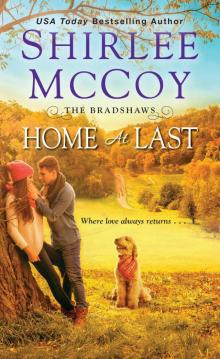 Home at Last
Home at Last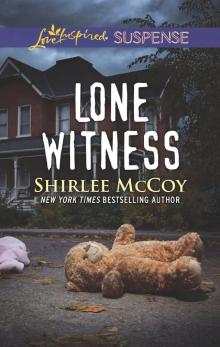 Lone Witness
Lone Witness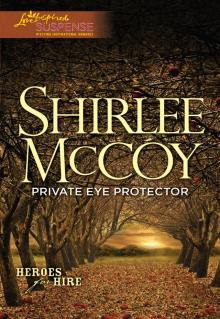 Private Eye Protector
Private Eye Protector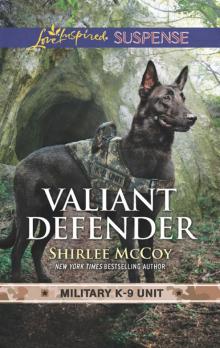 Valiant Defender
Valiant Defender Running Scared
Running Scared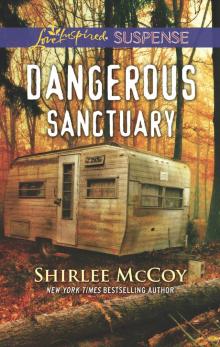 Dangerous Sanctuary
Dangerous Sanctuary Capitol K-9 Unit Christmas: Protecting VirginiaGuarding Abigail
Capitol K-9 Unit Christmas: Protecting VirginiaGuarding Abigail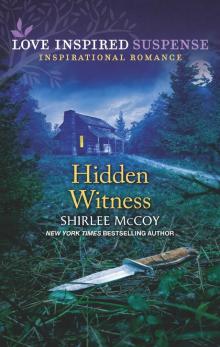 Hidden Witness
Hidden Witness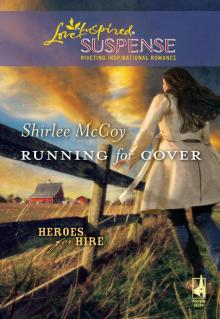 Running for Cover
Running for Cover Gone
Gone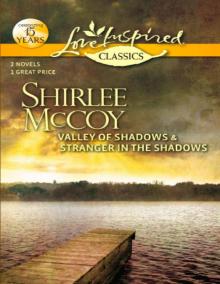 Valley of Shadows and Stranger in the Shadows: Valley of ShadowsStranger in the Shadows
Valley of Shadows and Stranger in the Shadows: Valley of ShadowsStranger in the Shadows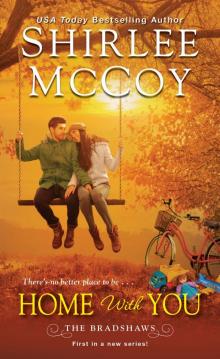 Home with You
Home with You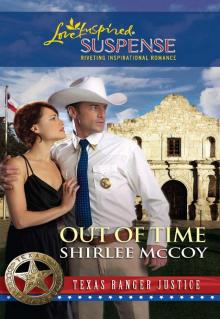 Out of Time
Out of Time Deadly Christmas Secrets
Deadly Christmas Secrets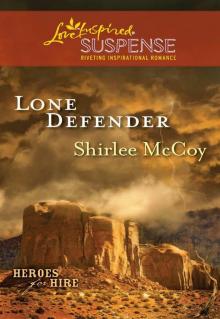 Lone Defender (Love Inspired Suspense)
Lone Defender (Love Inspired Suspense)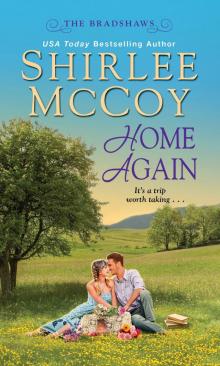 Home Again
Home Again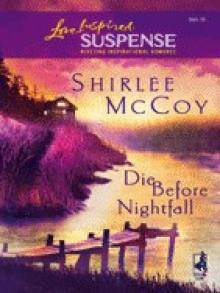 Die Before Nightfall
Die Before Nightfall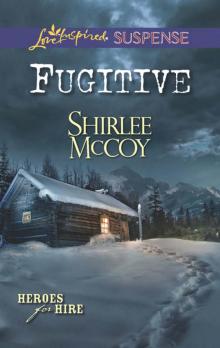 Fugitive
Fugitive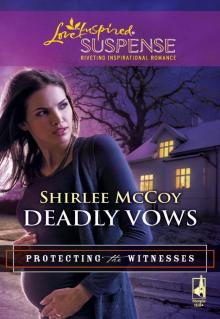 Deadly Vows
Deadly Vows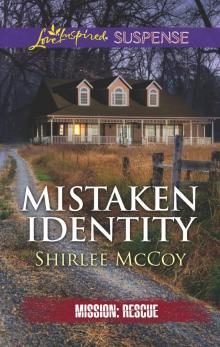 Mistaken Identity
Mistaken Identity Capitol K-9 Unit Christmas
Capitol K-9 Unit Christmas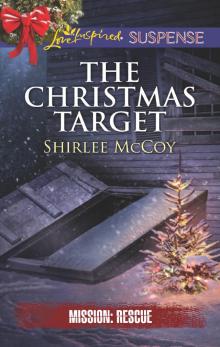 The Christmas Target
The Christmas Target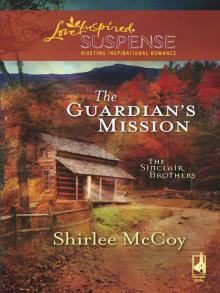 SB01 - The Guardian's Mission
SB01 - The Guardian's Mission Sweet Surprises
Sweet Surprises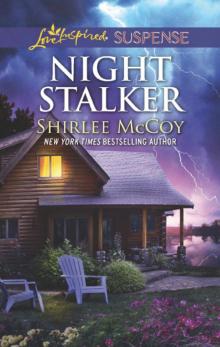 Night Stalker
Night Stalker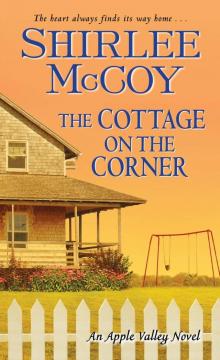 The Cottage on the Corner
The Cottage on the Corner Love Inspired Suspense January 2014
Love Inspired Suspense January 2014 0373447477 (R)
0373447477 (R) Love Inspired Suspense March 2015 - Box Set 1 of 2: Protection DetailHidden AgendaBroken Silence
Love Inspired Suspense March 2015 - Box Set 1 of 2: Protection DetailHidden AgendaBroken Silence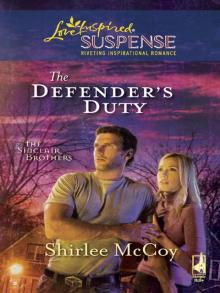 SB03 - The Defender's Duty
SB03 - The Defender's Duty Love Inspired Suspense June 2015 - Box Set 2 of 2: Exit StrategyPaybackCovert Justice
Love Inspired Suspense June 2015 - Box Set 2 of 2: Exit StrategyPaybackCovert Justice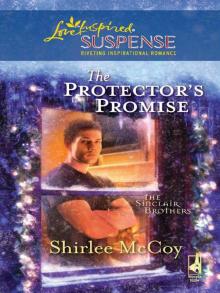 The Protector's Promise (The Sinclair Brothers)
The Protector's Promise (The Sinclair Brothers) Bodyguard
Bodyguard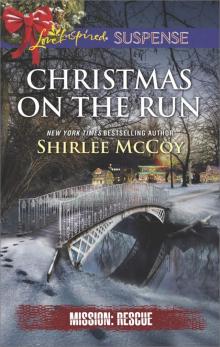 Christmas on the Run
Christmas on the Run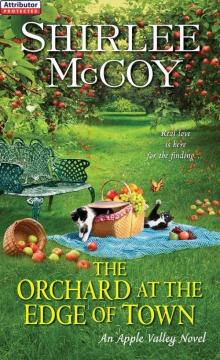 The Orchard at the Edge of Town
The Orchard at the Edge of Town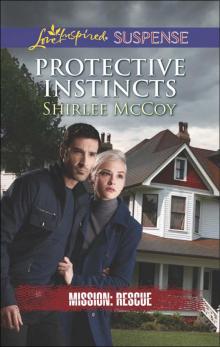 Protective Instincts
Protective Instincts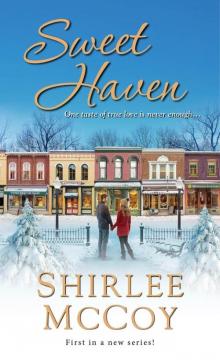 Sweet Haven
Sweet Haven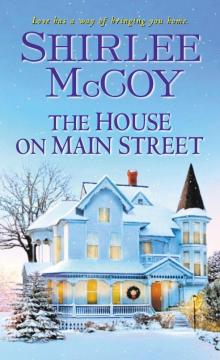 The House on Main Street
The House on Main Street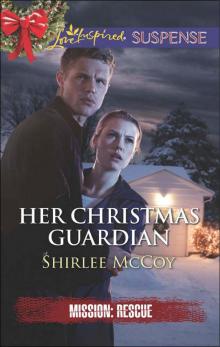 Her Christmas Guardian
Her Christmas Guardian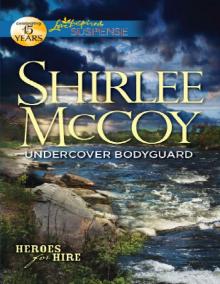 Undercover Bodyguard
Undercover Bodyguard